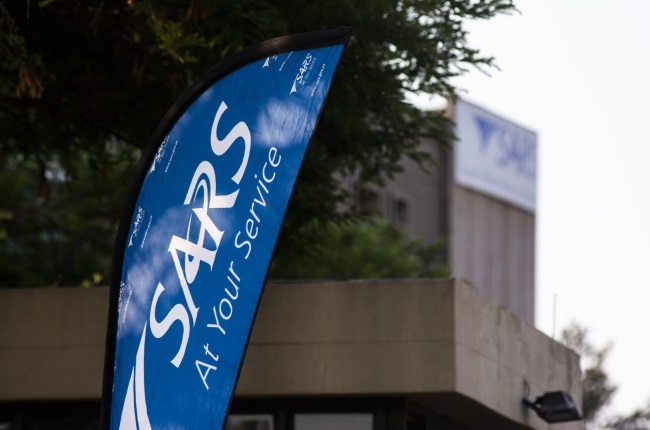
When people mention tax season, there is always a bit of anxiety that fills the air.
People often ask themselves, will the revenue service pay them or will they end up being the ones that owe money to the state.
Recently, celebrity chef, Lusizo Mvula Henna (41) was sentenced to 10 years imprisonment on 6 counts of fraud and six years imprisonment on 14 counts of money laundering by the Johannesburg Specialised Commercial Crimes Court.
Chef Lusizo is the owner of Blaque Olive Private Chef and the state successfully proved that as the owner of the business he claimed undue VAT refunds totaling R 5.3 million. Of that amount, the South African Revenue Services (SARS) paid R 3.1 million to him.
“There were no trading activities in Blaque Olive’s bank accounts resembling these claims.
“After receiving R 3.1 million in his bank account Henna laundered the R 3.1 million in 14 days by transferring the proceeds of the scheme to relatives, friends and others related to him,” the court heard.
The court found that these claims were solely submitted to defraud SARS.
Evidence in aggravation was presented on behalf of SARS explaining the damage to the fiscus as a result of schemes such as these.
Read more | MaMkhize’s right royal own goal
Advocate Marius Oosthuizen, on behalf of the State, submitted that only direct imprisonment would be appropriate as crimes against the fiscus have a detrimental impact on the government’s ability to render services.
It was further submitted that dealing harshly with offenders of schemes like these would improve South Africa’s grey listing status in respect of financial crimes. He added that it was important for the justice system to send a message to looters of the fiscus that they would be treated harshly.
Drum reached out to some financial experts to explain how one can land themselves in hot water with SARS, without dealing with the Chef Lusizo matter.
Financial planner Thobelani Thwala says ordinarily, members of the public do not generally get arrested unless it is somehow linked to businesses.
“Under normal circumstances, you owe SARS if you have extra income that is not disclosed. The job of calculating what is owed to SARS is usually done by HR departments. And there are IRP5 forms that are submitted.
“If that is calculated correctly, you should not end up owing SARS. Fringe benefits need to be disclosed.
“Tax evasion and fraud are illegal and SARS can open a case. If you are told you owe SARS, you have the option of disputing it, and that opens you up to further scrutiny by way of an audit. Alternatively, if you do not have the money, you can reach out to SARS to ask to make a payment arrangement.”
He says it’s very rare for private individuals who have no businesses to be arrested.
“It’s very rare for arrests in people’s personal capacity. But if a person is linked to a business because it’s a sole proprietorship, then it is a different story.”
Read more | Feeling short-changed by SARS? What you need to know about auto-assessments and how to get amendments
Adele Barnard, another financial planner agrees with Thobelani about being upfront and honest with the receiver of revenue.
“Best will be to contact SARS to make payment arrangements. Interest may be charged. If payment is not made by the due date, a possible penalty will be levied and interest will accrue from a backdated date. The backdated date starts at the first of the next month after the ‘Date of assessment’ was due.”
She says ordinary citizens do not usually get arrested.
“In short, no – only when very big amounts and or criminal tax offences [are committed] SARS make arrests,” she says.
According to the SARS website, they work closely with law enforcement.
When enforcing tax and customs legislation, SARS plays a particular role within the Criminal Justice System. SARS is statutorily mandated through its legislation to conduct criminal investigation into tax offences. Once the criminal investigation of the alleged tax offence is finalised, a formal complaint is registered with the South African Police Service to give effect to commencing the criminal justice process. The case docket is referred to the National Prosecuting Authority (Special Tax Unit prosecutors) to decide whether to institute a criminal prosecution.
Tax crime manifests in many forms. Here are some key examples:
- People don’t declare income to evade paying tax on that income.
- People lie about their expenses to reduce the tax they pay or to obtain an undue refund. For example, they may lie about their business mileage, business expenses or even medical contributions.
- People just don’t submit a tax return to SARS or fail to truthfully respond to our questions.
- Employers sometimes deduct tax from employees and never pay it over to SARS.
- Vendors, whether registered for VAT or not, sometimes charge VAT and never pay it over to SARS.
- Entities submit fraudulent invoices in an attempt to pay less tax or obtain undue (fraudulent) refunds (Income Tax and VAT).
- Individuals do not register for tax purposes to evade paying their dues.
- People do not submit returns as and when required to evade paying taxes due to SARS.
- Employers withhold employees tax (PAYE) and do not pay it over to the SARS.



















